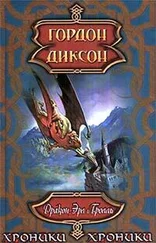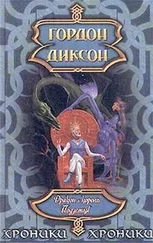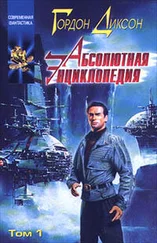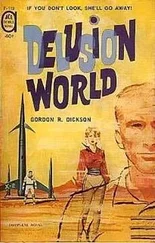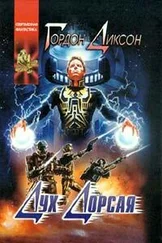Гордон Диксон - Soldier, Ask Not
Здесь есть возможность читать онлайн «Гордон Диксон - Soldier, Ask Not» весь текст электронной книги совершенно бесплатно (целиком полную версию без сокращений). В некоторых случаях можно слушать аудио, скачать через торрент в формате fb2 и присутствует краткое содержание. Год выпуска: 1983, ISBN: 1983, Жанр: Фантастика и фэнтези, на английском языке. Описание произведения, (предисловие) а так же отзывы посетителей доступны на портале библиотеки ЛибКат.
- Название:Soldier, Ask Not
- Автор:
- Жанр:
- Год:1983
- ISBN:0812504003
- Рейтинг книги:3 / 5. Голосов: 1
-
Избранное:Добавить в избранное
- Отзывы:
-
Ваша оценка:
- 60
- 1
- 2
- 3
- 4
- 5
Soldier, Ask Not: краткое содержание, описание и аннотация
Предлагаем к чтению аннотацию, описание, краткое содержание или предисловие (зависит от того, что написал сам автор книги «Soldier, Ask Not»). Если вы не нашли необходимую информацию о книге — напишите в комментариях, мы постараемся отыскать её.
On the sixteen colonized worlds, mankind had changed: men of War on the Dorsai worlds, men of Faith on the Friendly worlds.
Jamethon Black, a Friendly, is a true soldier, and a true man of faith. Now he must face a deadly enemy—an enemy whose defeat will forever separate him from the only woman he has ever loved.
Soldier, Ask Not — читать онлайн бесплатно полную книгу (весь текст) целиком
Ниже представлен текст книги, разбитый по страницам. Система сохранения места последней прочитанной страницы, позволяет с удобством читать онлайн бесплатно книгу «Soldier, Ask Not», без необходимости каждый раз заново искать на чём Вы остановились. Поставьте закладку, и сможете в любой момент перейти на страницу, на которой закончили чтение.
Интервал:
Закладка:
However, if he had only known it, by that question he had not so much attacked a soft spot in my own personal defenses, as revealed such a spot in his own.
”Right,” I said calmly, taking the papers back from him. And I improvised on the basis of what he had just given away about himself. “Now, about your promotion—”
“Promotion!”
He stared at me. The tone of his voice confirmed all I had deduced, one of the little ways people betray themselves by their choice of the accusations they bring to bear on others. The man who hints that you are a thief is almost sure to have a large, vulnerable area of dishonesty in his own inner self; and in this case, Frane’s attempt to needle me about my status undoubtedly assumed I was sensitive where he was sensitive. This attempt to insult, coupled with the fact that he was overage for the rank he held, indicated that he had been passed over at least once for promotion, and was vulnerable on the subject.
It was an opening wedge only—but all I needed, now, after five years of practicing my skills on people’s minds.
“Aren’t you up for promotion to Major?” I asked. “I thought—” I broke off abruptly, and grinned at him. “My mistake, I guess. I must have mixed you up with somebody else.” I changed the subject, looking around the hillside. ‘ ‘I see you and your people had a rough time here, earlier today.”
He broke in on me.
“Where’d you hear I’d been promoted?” he demanded, scowling at me. I saw it was time to apply a touch of the lash.
“Why, I don’t think I remember, Commandant,” I said, looking squarely back at him. I paused a minute to let that sink in. “And if I did, I don’t suppose I’d be free to tell you. A Newsman’s sources are privileged—they have to be, in my business. Just as the military has to have its secrecy.”
That brought him to heel. Suddenly he was reminded that I was not one of his infantrymen. He had no authority to order me to tell him anything I didn’t wish to tell him. I was a case calling for the velvet glove rather than the iron fist, if he wanted to get anything from me.
“Yes,” he said, struggling to make the transition from scowling to smiling as gracefully as possible.
“Yes, of course. You’ve got to forgive me. We’ve been under fire a lot here.”
“I can see that,” I said more sympathetically. “Of course, that’s not the sort of thing that leaves your nerves lying limp and easy.”
“No.” He managed a smile. “You—can’t tell me anything about any promotion affecting me, then?”
“I’m afraid not,” I said. Our eyes met again. And held.
“I see.” He looked away, a little sourly. “Well, what can we do for you, Newsman?”
“Why, you can tell me about yourself,” I answered. “I’d like to get some background on you.”
He faced back at me suddenly.
“Me?” he said, staring.
“Why, yes,” I said. “Just a notion of mine. A human-interest story—the campaign as seen from the viewpoint of one of the experienced officers in the field. You know.”
He knew. I thought he did. I could see the light coming back into his eyes, and all but see the wheels turning in the back of his mind. We were at the point where a man of clear conscience would have once again demanded—“Why me , for a human-interest story, instead of some other officer of higher rank or more decorations?”
But Frane was not about to ask it. He thought he knew why him. His own buried hopes had led him to put two and two together to get what he thought was four. He was thinking that he must indeed be up for a promotion—a battlefield promotion. Somehow, although he could not right now think why, his recent conduct in the field must have put him in line for an extra grade in rank; and I was out here to make my human-interest story out of that. Being nothing but a civilian, he was reasoning, it would not have occurred to me that he, himself, might not yet have heard of the pending promotion; and my ignorance had caused me thoughtlessly to spill the beans on first meeting him.
It was a little disgusting the way his voice and attitude changed, once he had finished working this out to his own satisfaction. Like some people of inferior ability, he had spent his lifetime storing up reasons and excuses to prove that he was really possessed of extraordinary qualities, but that chance and prejudice had combined until now to keep him from his rightful rewards.
He proceeded then to tell me all these reasons and excuses, in the process of informing me about himself; and if I had been actually interviewing him for purposes of reportage I could have convicted him of his small soul and little worth, out of his own words, a dozen times over. There was a whine to his story as he told it. The real money in soldiering was in work as a mercenary, but all the good mercenary opportunities went either to men of the Friendlies, or the Dorsai. Frane did not have either the guts or the conviction to live the hair-shirt life of even a commissioned officer among the Friendlies. And, of course, the only way anyone could be a Dorsai was to be born one. That left only garrison work, cadre-work, officering the standby forces of worlds or political areas—only to be shoved aside for the top command posts when war did come, by the mercenaries bom or built and imported for the actual fighting.
And garrison work, needless to say, paid a pittance compared to mercenary wages. A government could sign second-class officer material like Frane to long-term contracts at low salaries and hold them to it. But when the same government wanted mercenaries, it needed mercenaries; and every time it needed mercenaries, then quite naturally those who were in the business of laying their lives on the line for cash, drove hard bargains.
But enough about Commandant Frane, who was not that important. He was a little man who had now convinced himself that he was about to be recognized—in the Interstellar News Services at that—as a potentially big man. Like most of his kind he had a wildly inflated view of the usefulness of publicity in furthering a man’s career. He told me all about himself, he showed me about the positions on the hillside where his men were dug in; and by the time I was ready to leave, I had him reacting like a well-tuned machine to my every suggestion. So, just as I was about to head back behind the lines, I made it—the one real suggestion I had come here to make.
“You know, I’ve just had an idea,” I said, turning back to him. “Battle Headquarters has given me permission to pick out one of the enlisted men to assist me during the rest of the campaign. I was going to pick out one of the men from Headquarters Pool, but you know, it might be better to get one of the men from your Command.”
“One of my men?” He blinked.
“That’s right,” I said. “Then if there’s a request for a follow-up story on you or they want expansion of the original details about the campaign as you’ve seen it here, I could get the information from him. It wouldn’t be practical to chase you all over the battlefield for things like that; otherwise I’d simply have to message back advising that follow-up or expansion wasn’t possible.”
“I see,” he said; and his face cleared. Then he frowned again. “It’ll take a week or two to get a replacement up here so that I can let someone go, though. I don’t see how—”
“Oh, that’s all right,” I said, and fished a paper out of my pocket. ‘ ‘I’ve got authority to pick up anyone I want without waiting for his replacement—if the Commandant lets him go, of course. You’d be a man short for a few days, naturally, but—”
I let him think about it. And for a moment he was thinking—with all the nonsense gone out of his head—just like any other military commander in such a position. All the Commands in this sector were understrength after the last few weeks of battle. Another man out meant a hole in Frane’s line, and he was reacting to the prospect with the conditioned reflexes of any officer in the field.
Читать дальшеИнтервал:
Закладка:
Похожие книги на «Soldier, Ask Not»
Представляем Вашему вниманию похожие книги на «Soldier, Ask Not» списком для выбора. Мы отобрали схожую по названию и смыслу литературу в надежде предоставить читателям больше вариантов отыскать новые, интересные, ещё непрочитанные произведения.
Обсуждение, отзывы о книге «Soldier, Ask Not» и просто собственные мнения читателей. Оставьте ваши комментарии, напишите, что Вы думаете о произведении, его смысле или главных героях. Укажите что конкретно понравилось, а что нет, и почему Вы так считаете.
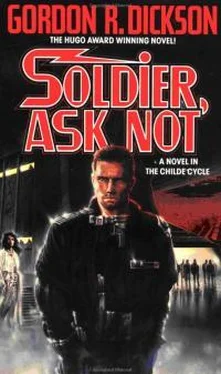
![Гордон Диксон - Некромант [Некромансер; Нет места человеку]](/books/4913/gordon-dikson-nekromant-nekromanser-net-mesta-che-thumb.webp)
